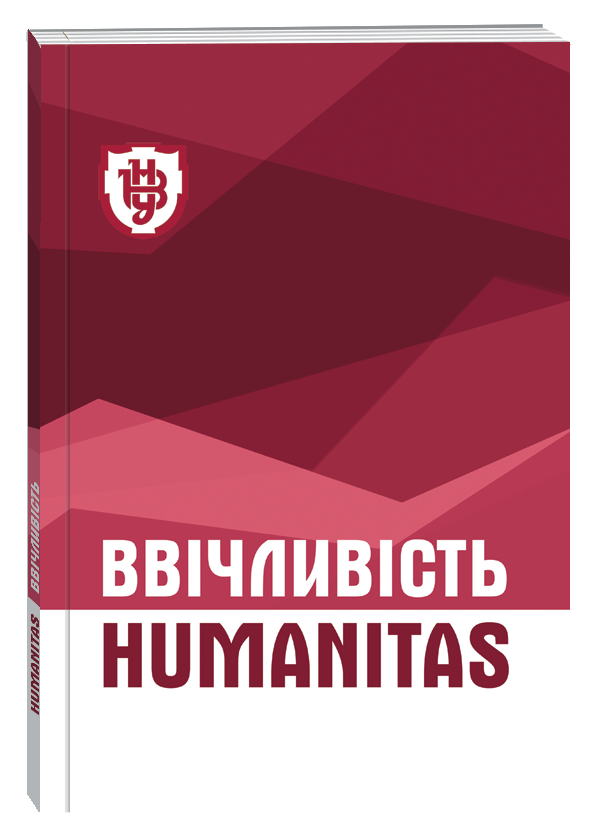RESEARCHING STUDENTS' OPINIONS ON THE PROBLEM OF MEDIA MANIPULATION THROUGH FACT-CHECKING
DOI:
https://doi.org/10.32782/humanitas/2023.1.14Keywords:
media manipulation, fact-checking, media competence, disinformation, inoculation theory, students.Abstract
Mass media play a key role in the life of society and have an extraordinary media manipulative effect. Recently, media flows have been saturated with elements of influence – disinformation and manipulation. The so-called "information wars," especially in the online format, have become more manipulative and destructive for the global community over the past year. In the modern world, many types of suggestive influence and subconscious pressure have developed on both individuals and society as a whole, especially through online media. The development of information technology makes it possible to control all types of people's minds, while propaganda and the spread of disinformation, especially during the Russian- Ukrainian war, is an example of manipulation and subliminal suggestion. In order to manipulate and control societies, media technologies are currently being used to generate negative ideas, stereotypes, attitudes, and behavioral patterns. In this article, we consider the issues of studying students' opinions on the problem of manipulation in the media space. In the context of Russia's information aggression against Ukraine and the world as a whole, the study of the problem of manipulation in the media space, especially media influence on students, is extremely important and relevant. One of the main indicators for studying, analyzing the assessment of student opinion and media literacy, as well as for further development of a social and pedagogical strategy to counter manipulative weapons in the media, is research on the attitude of young people to this issue. On the part of the humanities, especially social pedagogy and social psychology, our chosen research topic remains open and has not been fully explored. Theoretical analysis and empirical research are needed for a deeper understanding of the processes of countering manipulation, acquiring the ability to recognize manipulative technologies, preventing unwanted manipulative manifestations in time, and professionally applying tools to counter suggestive influences. Media manipulation is a type of social and psychological influence that is carried out through the press, television, online media, billboards, and social networks. It should be emphasized that we have chosen a powerful and effective tool – fact-checking – as the basis for our sociological research, namely, exposing manipulations and factual speculations on the topic of the Russian-Ukrainian war. Fact-checking is the verification of facts and statements for accuracy and truthfulness. Therefore, we used the rule of fact-checking statements from various global media resources as the methodology for conducting the survey. We used such scientific methods as the processing of scientific sources; search and processing of information on media manipulation, fake news, fact-checking; theoretical analysis of the information space for the presence of manipulative technologies; survey and comparison of the opinions of students from Ukraine and Poland on awareness of countering the spread of disinformation.
References
Аксьонова Н. Дослідження впливу мас-медіа в умовах інформаційної війни. Наукові праці Національної бібліотеки України імені В. І. Вернадського. 2017. № 48. C. 480-493. URL: http://irbis-nbuv.gov.ua/everlib/item/ er-0000001714 (дата звернення: 25.03.2023).
Гороховський О. М. Фактчек як тренд розслідувань : можливості та перспективи : практичний посібник. Дніпро : ЛІРА, 2017. 133 с.
Лекції на підтримку України #GlobalMinds4Ukraine. Kyiv School of Economics. URL : https://kse.ua/ua/lektsina- pidtrimku-ukrayini/ (дата звернення: 24.03.2023).
Мартиненко І.О. Сучасні медіа-маніпуляції : механізми та інструменти протидії : кваліфікаційна (магістерська) робота. Донецький національний університет імені Василя Стуса. Вінниця, 2021. 79 с.
Медіаграмотність: як не піддаватися маніпуляціям? Prometheus. URL: https://courses.prometheus.org.ua/ courses/coursev1:Prometheus+MEDIA_L101+2022_T3/about (дата звернення: 20.03.2023).
Ороховська Л. А. Трансформації суспільної свідомості під впливом новітніх інформаційно-комунікаційних технологій. Вісник Національного авіаційного університету. Філософія. Культурологія. 2017. № 2. С. 26-30. URL: http://nbuv.gov.ua/UJRN/Vnau_f_2017_2_7 (дата звернення: 26.03.2023).
Пуцята І. Фейк як метод маніпуляції у ЗМІ : український досвід. Вісник Національного університету «Львівська політехніка». Випуск 4, 2020 С.170-175. URL: https://science.lpnu.ua/uk/sjs/vsi-vypusky/vypusk-4-nomer-2020/ feyk-yak-metod-manipulyaciyi-u-zmi-ukrayinskyy-dosvid (дата звернення: 28.03.2023).
Твердохліб О., Гайович Г. Сугестія та її прояви в сучасному інформаційному просторі держави. Науковий вісник «Державне управління». 2022. № 1 (11). С. 222-239.
Шульська Н.М., Зінчук Р.С. Медіаманіпуляції в умовах російсько-української війни. «Південний архів». 2022. № 90. С. 68-76.
Ягодзінський С. М. Інформаційний простір глобальних мереж: соціально-філософський аспект. Вісник Національного авіаційного університету. 2012. № 2 (16). С. 66-69.







